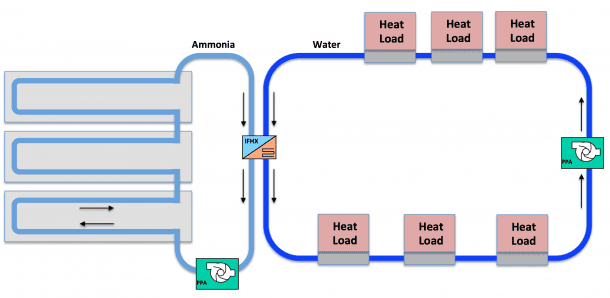The International Space Station is equipped with very powerful systems. Powerful computing systems generate large amounts of heat. How is this heat build up controlled in the ISS?
Every system that generates heat comes with some kind of radiator for cooling it down. Just like that, the ISS also uses radiators to reject its system heat into space. The station is equipped with ten large surfaces that serve the purpose.

All the systems at the station are connected to a coolant system. The coolant system links the heat load to a cold plate. Through the cold plate runs cold water, that collects all the heat through convection. The warm water is then cooled down using a box called Interface Heat Exchanger (IFHX). The water runs through coolant pipes that intersect the IFHX. Through the box also run ammonia filled coolant pipes. The heat from the water pipes is transferred to the ammonia pipes through conduction. The warmed up ammonia then flows out the station into the radiators that reject the heat thus cooling the ammonia. The same ammonia travels back to the IFHX, to pick up more heat completing the loop.

If you know more about the cooling system on the International Space Station, let us know in the comments!


